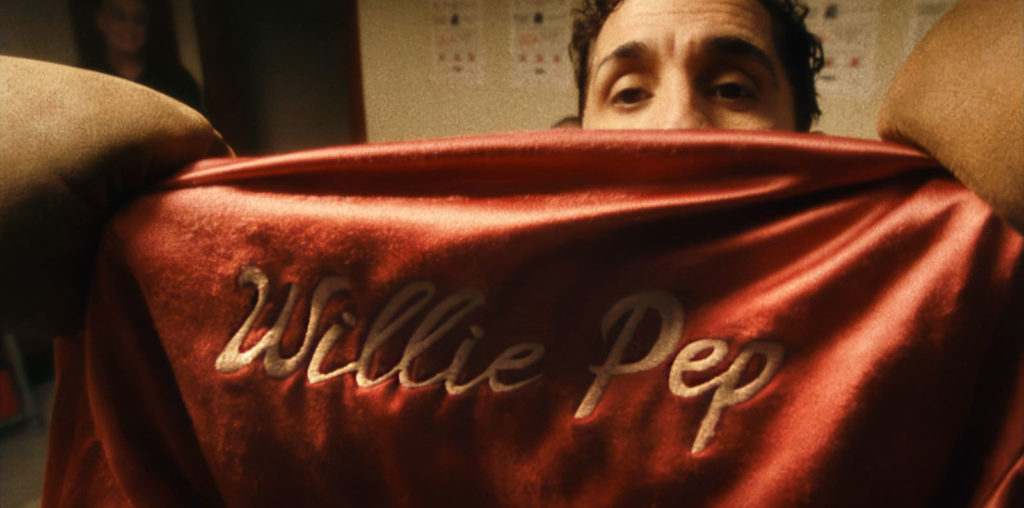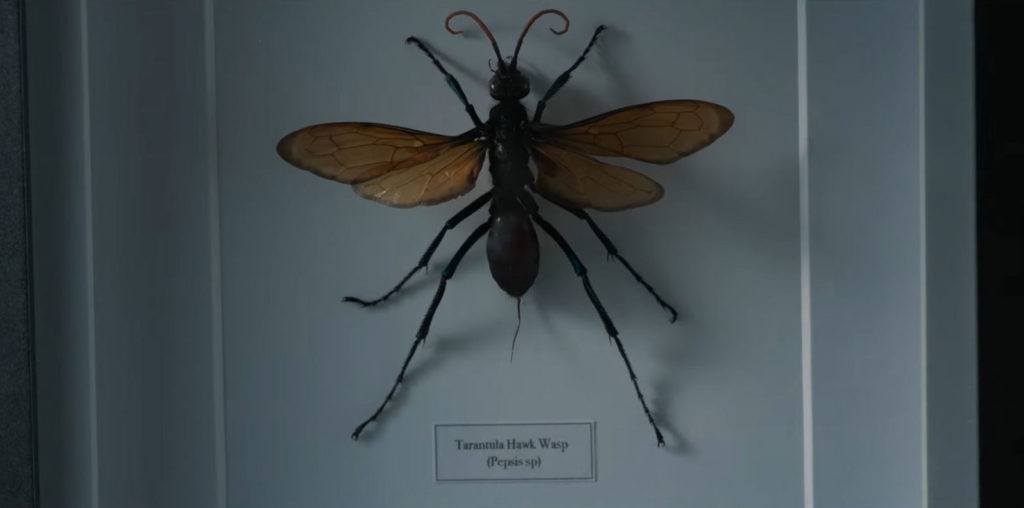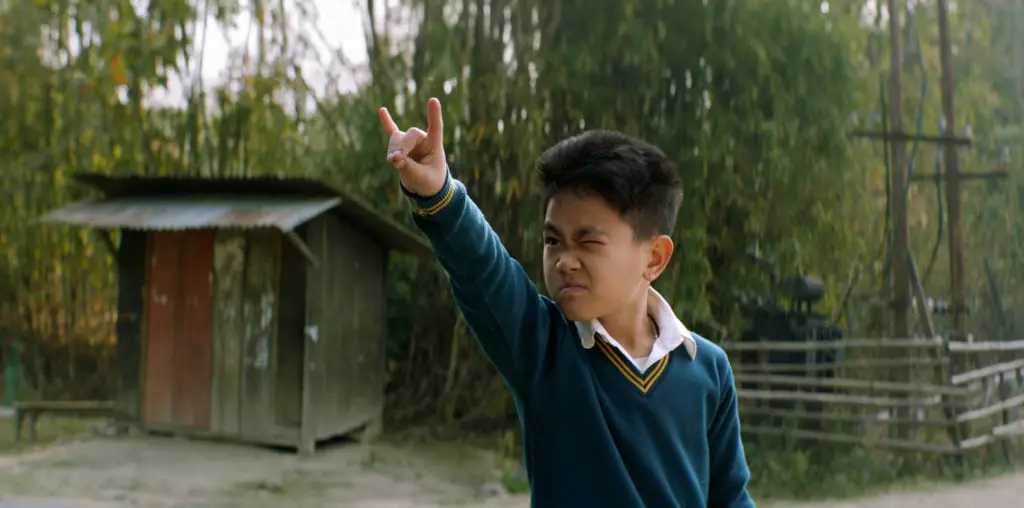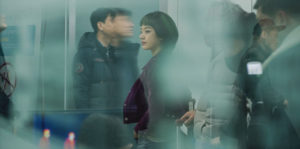
Han Shuai’s Green Night provides a familiar framework for an LGBTQ+ romance on the silver screen. Here in the West, we’ve been watching similar films for decades, but in many other parts of the world, the non-heteronormative experience is still largely unexplored territory. Han’s South Korean film closes this gap to a degree while also highlighting the precarious status of immigrants in highly developed countries like South Korea. Combining elements of noir and romance, Green Night is a striking feature — even when Han too readily embraces convention.
Jingxia (Bingbing Fan) is a Chinese immigrant working as a security officer at Incheon Airport near Seoul. Her marriage to a hyper-religious Korean national has crumbled, though, and her residency status is now in question. She’s a dutiful worker at the airport who becomes entwined in a criminal enterprise after she stops a suspicious yet alluring young woman with green hair (Lee Joo-young). Said woman (we never learn her name) is working as a drug mule and has a mutually beneficial deal with airport security, so she doesn’t get stopped. Jingxia’s interference ruins their scheme. Both women are now in hot water and start on an adventure that could potentially pay for Jingxia to stay in the country.
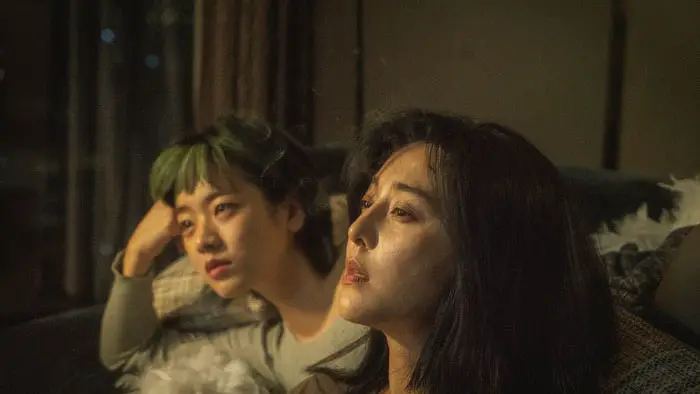
“Her marriage to a hyper-religious Korean national has crumbled, and her residency status is now in question.”
This is a fresh set-up for a burgeoning romance, and the relationship between the two women becomes center stage. Lee’s character is a rebel at heart, used to navigating a world that is less than accepting of her lifestyle choices. Jingxia is more rigid and inexperienced when it comes to emotional and physical intimacy with a woman. This dynamic of the closeted woman being drawn out into her true sexual identity by a more experienced cohort is a well-worn trope in 2024. That being said, Lee gives a compelling enough performance as the two fall for each other, though some will undoubtedly question the optics of associating lesbianism with criminality.
The more stimulating aspect of Green Night is the journey in Seoul’s criminal underbelly. We don’t often see this side of the South Korean capital. Han and DP Matthias Delvaux crafted a visually enticing environment for their film, and the neon-lit nights (often in a shade of green to match Lee’s hair) help differentiate Green Night from similar lesbian romances. It’s ultimately a distinction that is sorely needed, even if it doesn’t exactly cross into Michael Mann territory.
If there’s anything to complain about in Green Night, audiences in the US will be somewhat numb to another love story in this vein. It’s understandable that in other parts of the world, this is still novel or transgressive, but it won’t move the needle much here. The trope of a traditional woman having her sexual awakening with a carefree drifter was perfected in Desert Hearts and still hasn’t been matched. But for those eager for a tamer Blue is the Warmest Color in East Asia, this should scratch that particularly niche itch, and should bring Lee into the spotlight.
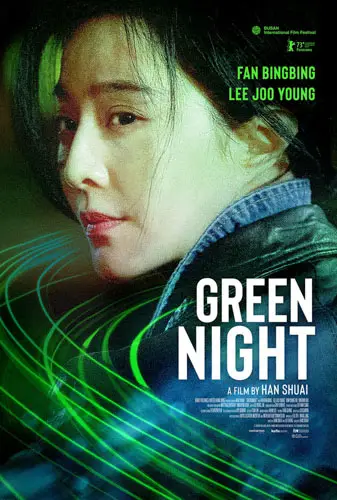
"…Han and DP Matthias Delvaux crafted a visually enticing environment..."
